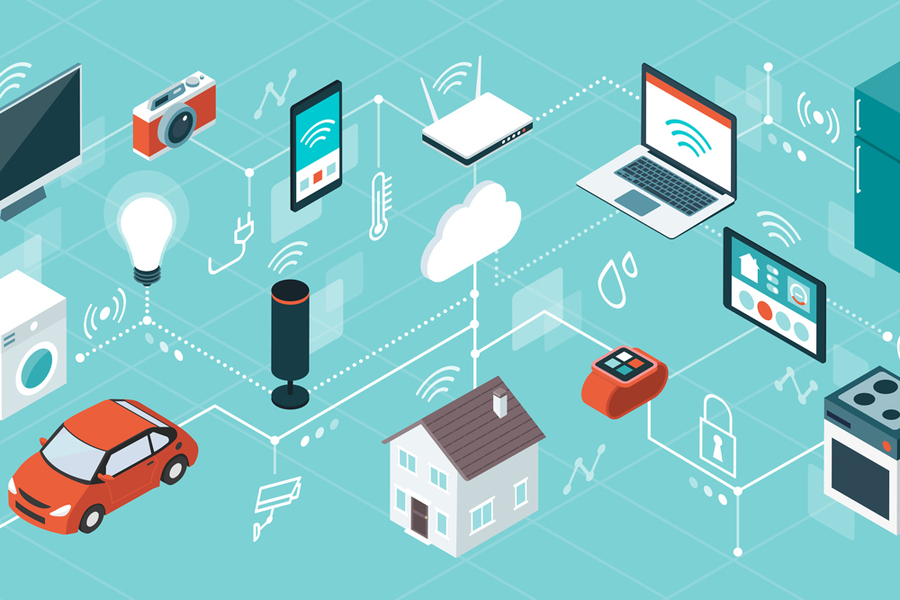IoT – The Internet of Things
The Internet of Things – IoT is a revolutionary concept that refers to the interconnection of everyday objects and devices to the Internet, enabling them to collect, exchange, and analyze data.
IoT technology extends the capabilities of traditional computing devices beyond computers and smartphones, integrating everyday objects into the digital realm.
This interconnectedness allows for seamless communication and data sharing, leading to numerous applications in various industries and aspects of daily life.

How IoT Works:
IoT devices are equipped with sensors, actuators, and communication technologies that enable them to gather and transmit data. These devices can range from smart home appliances also wearable fitness trackers to industrial machines and autonomous vehicles.
Internet of Things data is sent to cloud servers for processing, analysis, and informed decision-making.
Applications of IoT:
The Internet of Things has found applications in multiple sectors, transforming industries and enhancing efficiency:
- Smart Homes: IoT enables homeowners to control also monitor their home appliances, security systems, and lighting remotely, making homes more energy-efficient and convenient.
- Healthcare: Internet of Things devices like wearable fitness trackers and remote patient monitoring systems help individuals track their health metrics, while medical professionals can access real-time patient data for better care.
- Industrial IoT (IIoT): In manufacturing and industrial settings, sensors also analytics optimize production processes, reduce downtime, and improve safety.
- Transportation: IoT transforms transportation with connected vehicles and smart traffic management for safer, efficient networks.
- Agriculture: IoT aids agriculture through precision farming, where sensors optimize irrigation also fertilization based on soil and crop data.
Challenges and Concerns:
As Internet of Things technology continues to expand, there are several challenges to address:
- Security: Internet of Things devices are susceptible to cyberattacks, also breaches can have severe consequences. Ensuring robust security measures is crucial to protect data and prevent unauthorized access.
- Privacy: The massive amount of data collected by IoT devices raises privacy concerns. It is essential to handle data responsibly also transparently, respecting user privacy.
- Interoperability: The vast diversity of IoT devices from different manufacturers can create compatibility issues. Establishing common standards is necessary to ensure seamless integration and communication.
Conclusion
The Internet of Things is reshaping the way we interact with the world, introducing new levels of connectivity and convenience. IoT is innovating daily tasks at home and reshaping industries, driving transformative change in our lives and workplaces.
As the Internet of Things evolves, addressing security, privacy, also interoperability challenges is crucial for unlocking its potential responsibly.
By addressing these concerns, the Internet of Things can further drive positive change and enhance our digital lives. 바카라사이트